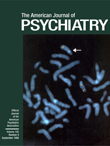To the Editor: I am grateful for this wise clinical response to the article on complicated grief disorders, in which Dr. Lister endorsed the main findings of the paper yet challenged some aspects of the criteria suggested. I think this exchange will be a useful clarification of the key concepts involved.
One issue raised was the 14-month time period that we used in order to eliminate the possibility that anniversary-time turbulence might transiently increase self-report of symptoms. Dr. Lister correctly says that normal grief reactions may include some symptoms beyond that time interval. It is, however, important to distinguish between the design of empirical studies and the clinical application of the findings. The clinical application suggested in the article is a diagnostic entity to be added to DSM, as in DSM-V. The diagnosis, as outlined in the end of our article, would be used only when dysfunction was unduly prolonged as judged by a clinician in the individualized context of each patient and the particular cascade of stressor events surrounding the bereavement. For actuarial purposes, in collecting series of cases to establish knowledge about incidence and validity, it is necessary for groups of clinicians to share some definition of “prolonged”; therefore, some generalized times, such as “over 1 year,” need to be used.
On the basis of the present article and prior studies
(1-
4), I am in complete agreement with Dr. Lister. Some major events—especially the death of a child—will in a salient proportion of affected parents be followed by years, or even a lifetime, of repeated contemplations as well as intrusive and avoidant symptoms. These symptoms may not warrant a diagnosis of complicated grief reaction. Nevertheless, it is highly desirable to have such a diagnosis available. It can 1) provide a causal diagnostic entity from which to plan individualized formulations and treatment plans that might be highly effective in relieving distress, and 2) avoid the danger of third-party payers’ failure to cover such treatments on the grounds that the suffering person does not have a defined mental disorder. Such diagnoses need not stigmatize a person who seeks professional help.
Dr. Lister is correct when she says that we do not want to pathologize unnecessarily and that we can use psychotherapy as an opportunity for working through a mourning process even when no diagnosis is warranted. As Engle asked, “Is grief a disease?” No, it is a normal human capacity for adapting to loss. Psychotherapy can facilitate the adaptation. Yet sometimes stressor events, in interaction with preexisting variables, precipitate a variety of mental disorders including posttraumatic stress disorder and adjustment disorders. A validated diagnosis of complicated grief disorder would be a useful addition to the nosology and, as with all other categories of diagnosis, should be used by clinicians in association with their useful, careful, individualized, and contextually informed judgments.

